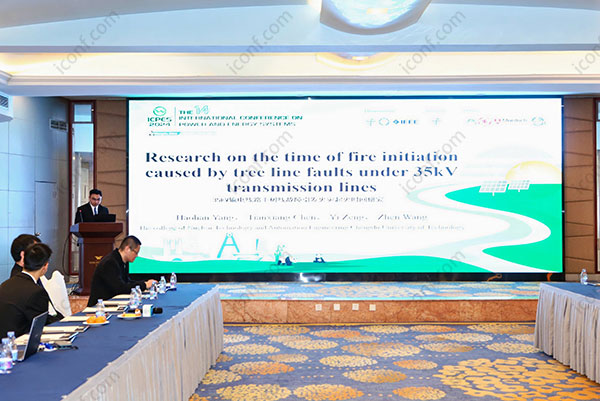

373 views||Release time: Jun 23, 2025
Finding a suitable academic conference is the first step toward sharing your research, building your academic network, and advancing your career. But with so many conferences worldwide, how do you know where to look, which ones are credible, and which are relevant to your field?
This article provides a step-by-step guide on how to search, evaluate, and select academic conferences—and explains how iconf.com helps simplify the entire process.

Before you search, be clear about your goals:
Do you want to present your paper, or simply attend and learn?
Is your field in computer science, engineering, social science, or medicine?
Are you aiming for EI, Scopus, or SCI indexing?
Are you looking for online, in-person, or hybrid events?
Knowing your focus helps you narrow down relevant and beneficial conferences.
Dedicated platforms make it easier to find trustworthy conferences in your field. One of the most effective is:
A curated academic conference database
Offers filters by indexing type (EI, Scopus, SCI)
Sortable by field, country, date, and topic
Displays submission deadlines, conference info, and organizer details
Helps avoid predatory or fake conferences
Other platforms include:
University bulletins and professional associations
But iconf.com is especially useful for targeted and verified academic events across disciplines.
While browsing conference lists, focus on:
Subject relevance to your research area
Indexing status (e.g., EI, Scopus, CPCI)
Location and format (online or offline)
Paper submission deadline and conference date
Publishing outlet (journals, proceedings, special issues)
These factors determine both the academic value and logistical suitability of the event.
Unfortunately, not all conferences are equal. Look out for signs of low quality:
Unrealistically short peer-review periods
Vague or unclear organizers
Conference topics too broad or unrelated
Unverifiable indexing claims
iconf.com lists conferences with confirmed indexing and verified organizers to help you avoid these risks.
Academic conferences have strict timelines. To avoid missing out:
Bookmark reliable platforms like iconf.com
Set reminders for deadlines
Subscribe to updates by field or region
Follow academic societies in your area of research
Planning early increases your chance of getting accepted and preparing a high-quality presentation.
Look at past conferences in your field:
Check conference proceedings or organizer websites
Many events are annual or biannual, held around the same time each year
Platforms like iconf.com often provide links to past editions to help you judge quality
Finding the right academic conference is not just about typing keywords into a search engine. It's about using targeted tools, filtering by credible indexing, and choosing events that align with your academic goals. Platforms like iconf.com empower you to search smarter, avoid risks, and make the most of every academic opportunity.